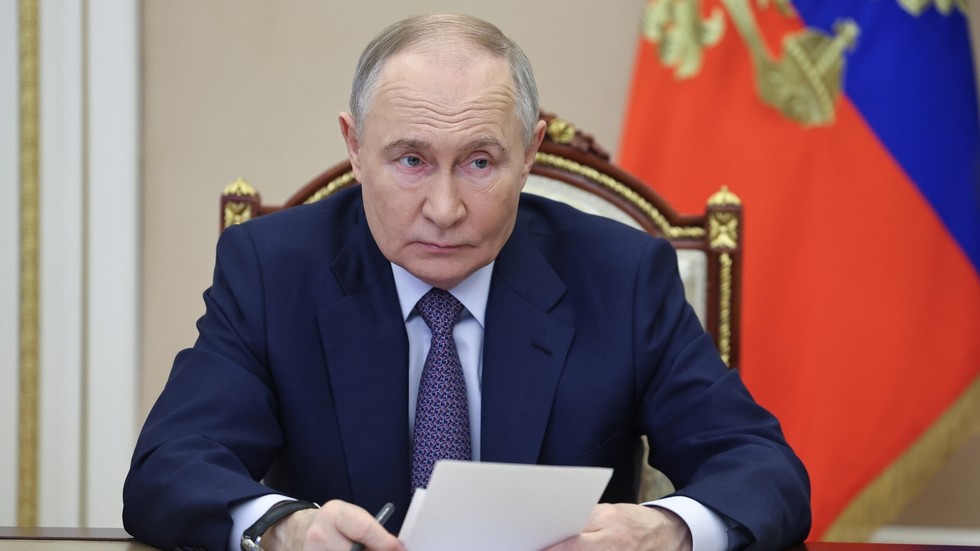The US president said China’s financial support for its businesses was ‘cheating’ and not competition.
Published On 14 May 2024
President Joe Biden has slapped major new tariffs on Chinese electric vehicles, advanced batteries, solar cells, steel, aluminium and medical equipment, taking potshots at Donald Trump along the way as he embraced a strategy that’s increasing friction between the world’s two largest economies.
The Democratic president said on Tuesday that Chinese government subsidies ensure the nation’s companies do not have to turn a profit, giving them an unfair advantage in global trade.
“American workers can outwork and outcompete anyone as long as the competition is fair,” Biden said in the White House Rose Garden. “But for too long, it hasn’t been fair. For years, the Chinese government has poured state money into Chinese companies … it’s not competition, it’s cheating.”
China immediately promised retaliation. Its Ministry of Commerce said Beijing was opposed to the tariff hikes by the United States and would take measures to defend its interests.
Biden will keep tariffs put in place by his Republican predecessor Donald Trump while ratcheting up others, including a quadrupling of EV duties to more than 100 percent and doubling the duties on semiconductor tariffs to 50 percent.
The new measures affect $18bn in imported Chinese goods including steel and aluminium, semiconductors, electric vehicles, critical minerals, solar cells and cranes, the White House said. The EV figure, while headline-grabbing, may have more political than practical impact in the US, which imports very few Chinese EVs.
The US imported $427bn in goods from China in 2023 and exported $148bn to the world’s number-two economy, according to the US Census Bureau, a trade gap that has persisted for decades and become an ever more sensitive subject in Washington.
US Trade Representative Katherine Tai said the revised tariffs were justified because China was stealing US intellectual property. But Tai recommended tariff exclusions for hundreds of industrial machinery import categories from China, including 19 for solar product manufacturing equipment.
The tariffs come in the middle of a heated campaign between Biden and Trump, his Republican predecessor, to show who’s tougher on China.
Asked to respond to Trump’s comments that China was eating the US’s lunch, Biden said of his rival, “He’s been feeding them a long time.” The Democrat said Trump had failed to crack down on Chinese trade abuses as he had pledged he would do during his presidency.
Karoline Leavitt, the Trump campaign’s press secretary, called the new tariffs a “weak and futile attempt” to distract from Biden’s own support for EVs in the United States, which Trump says will lead to layoffs at car factories.
Administration officials said their measures are combined with domestic investment in key industries and unlikely to worsen a bout of inflation that has already angered US voters.
Trade tariff
Biden has struggled to convince voters of the efficacy of his economic policies despite a backdrop of low unemployment and above-trend economic growth. A Reuters/Ipsos poll last month showed Trump had a seven percentage-point edge over Biden on the economy.
 China’s BYD overtook Tesla as the biggest seller of electric vehicles [File: VCG/VCG via Getty Images]
China’s BYD overtook Tesla as the biggest seller of electric vehicles [File: VCG/VCG via Getty Images]Analysts have warned that a trade tiff could raise costs for EVs overall, hurting Biden’s climate goals and his aim to create manufacturing jobs.
Biden has said he wants to win this era of competition with China but not to launch a trade war. He has worked in recent months to ease tensions in one-on-one talks with Chinese President Xi Jinping.
Both 2024 US presidential candidates have departed from the free-trade consensus that once reigned in Washington, a period capped by China’s joining the World Trade Organization in 2001. Trump’s broader imposition of tariffs during his 2017-2021 presidency kicked off a tariff war with China.
As part of the long-awaited tariff update, Biden will increase tariffs this year from 25 percent to 100 percent on EVs, bringing total duties to 102.5 percent, from 7.5 percent to 25 percent on lithium-ion EV batteries and other battery parts and from 25 percent to 50 percent on photovoltaic cells used to make solar panels. Some critical minerals will have their tariffs raised from nothing to 25 percent.
More tariffs will follow in 2025 and 2026 on semiconductors, as well as lithium-ion batteries that are not used in electric vehicles, graphite and permanent magnets, as well as rubber medical and surgical gloves.
A number of lawmakers have called for massive hikes on Chinese vehicle tariffs or an outright ban over data privacy concerns. There are relatively few Chinese-made light-duty vehicles being imported now.
The United Auto Workers, a politically important union that endorsed Biden, said the tariff moves would ensure that “the transition to electric vehicles is a just transition.”

 7 months ago
27
7 months ago
27









